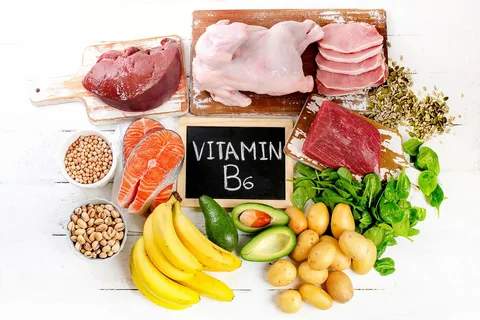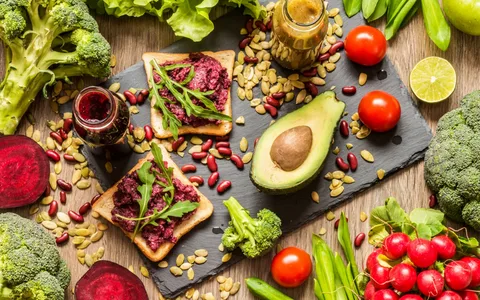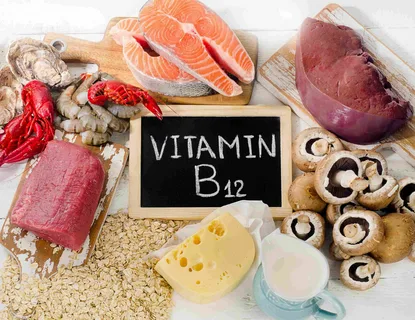Vitamin B6, also known as pyridoxine, is a crucial nutrient involved in various bodily functions, including metabolism, nerve function, and the production of neurotransmitters. It’s water-soluble, meaning your body doesn’t store it, so regular intake through diet or supplements is essential. This guide explores how to naturally increase your Vitamin B6 levels through dietary choices and lifestyle habits.
Understanding Vitamin B6
What is Vitamin B6 and why is it important?
Vitamin B6 is one of the B-complex vitamins that plays a vital role in over 100 enzyme reactions involved in metabolism. It’s essential for the metabolism of amino acids (the building blocks of proteins), the synthesis of neurotransmitters like serotonin and dopamine, and the production of hemoglobin, which carries oxygen in red blood cells.
What are the recommended daily intake levels for Vitamin B6?
The recommended daily intake of Vitamin B6 varies by age and gender:
- Adults under 50 years: 1.3 mg/day
- Adults over 50 years: 1.5 mg/day for men and 1.2 mg/day for women Pregnant and breastfeeding women may need slightly more.
What are the signs of Vitamin B6 deficiency?
Symptoms of Vitamin B6 deficiency can include irritability, depression, confusion, changes in mood, anemia, weakened immune function, and skin rashes. Severe deficiency can lead to neurological issues.
Sources of Vitamin B6
What foods are rich in Vitamin B6?
Vitamin B6 is found in a variety of foods, both animal and plant-based:
- Animal sources: Chicken, turkey, fish (like salmon and tuna), liver, and eggs.
- Plant sources: Potatoes, chickpeas, bananas, fortified cereals, nuts (like pistachios and walnuts), seeds (such as sunflower seeds), and whole grains (like oats and brown rice).
How can vegetarians and vegans get enough Vitamin B6?
Vegetarians and vegans can obtain Vitamin B6 from plant-based sources like fortified cereals, soy products, chickpeas, nuts, seeds, and whole grains. Including a variety of these foods in your diet can help meet your Vitamin B6 needs.
Enhancing Your Vitamin B6 Intake
What cooking methods preserve Vitamin B6 content in foods?
Vitamin B6 is sensitive to heat and can be lost during cooking. To preserve Vitamin B6:
- Steam vegetables instead of boiling them.
- Cook meats at lower temperatures and avoid prolonged cooking times.
- Consider consuming some foods raw, like nuts and seeds, to retain their Vitamin B6 content.
Are there natural supplements or fortified foods that can help boost Vitamin B6 intake?
While whole foods are the best sources of Vitamin B6, fortified cereals and nutritional yeast can provide additional amounts. However, it’s essential to prioritize whole foods to ensure you’re getting other essential nutrients along with Vitamin B6.
Lifestyle Tips for Optimizing Vitamin B6 Absorption
How does alcohol consumption affect Vitamin B6 levels?
Excessive alcohol consumption can interfere with the absorption and utilization of Vitamin B6 in the body. Limiting alcohol intake or abstaining can help maintain adequate Vitamin B6 levels.
Are there medical conditions that can affect Vitamin B6 absorption?
Certain medical conditions, such as kidney disease, autoimmune disorders, and malabsorption syndromes, can impair Vitamin B6 absorption or increase the body’s demand for it. In such cases, consulting a healthcare professional for personalized advice is recommended.
FAQs About Vitamin B6
How does Vitamin B6 impact mood and cognitive function?
Vitamin B6 is involved in the synthesis of neurotransmitters like serotonin and dopamine, which regulate mood, sleep, and cognitive function. Adequate Vitamin B6 intake may support mental well-being and cognitive performance.
Can Vitamin B6 help alleviate symptoms of PMS (premenstrual syndrome)?
Some studies suggest that Vitamin B6 supplementation may help reduce symptoms of PMS, such as mood swings and bloating. However, more research is needed to confirm its effectiveness.
Is it possible to get too much Vitamin B6?
Excessive intake of Vitamin B6 from supplements can cause neurological symptoms like numbness, sensory changes, and nerve damage. It’s generally safe to get Vitamin B6 from foods, but high-dose supplements should be taken under medical supervision.
How does Vitamin B6 contribute to heart health?
Vitamin B6 is involved in regulating levels of homocysteine, an amino acid linked to heart disease risk. Adequate intake of Vitamin B6, along with other B vitamins like B12 and folate, may help maintain heart health.
Can Vitamin B6 help with immune function?
Vitamin B6 plays a role in supporting immune function by influencing the production and activity of immune cells. Ensuring adequate intake of Vitamin B6 as part of a balanced diet may help support overall immune health.
What are the benefits of Vitamin B6 for skin and hair?
Vitamin B6 is involved in the production of collagen, a protein essential for skin elasticity and wound healing. It also supports the metabolism of amino acids necessary for healthy hair growth.
Does Vitamin B6 interact with medications?
Vitamin B6 supplements can interact with certain medications, including antiepileptic drugs, levodopa (used to treat Parkinson’s disease), and some antibiotics. If you’re taking medications, consult your healthcare provider before starting Vitamin B6 supplements.
How can I tell if I’m getting enough Vitamin B6 from my diet?
Monitoring your dietary intake of Vitamin B6-rich foods and considering any symptoms of deficiency can help determine if you’re getting enough. Consulting a registered dietitian or healthcare provider for personalized advice is advisable.
Are there special considerations for athletes or physically active individuals regarding Vitamin B6?
Physical activity can increase the body’s need for Vitamin B6 due to its role in energy metabolism and muscle function. Athletes or highly active individuals should ensure adequate intake through a balanced diet rich in Vitamin B6 sources.
Can Vitamin B6 deficiency affect children’s development?
Vitamin B6 deficiency in children can impair growth, neurological development, and immune function. Ensuring children consume a varied diet that includes Vitamin B6-rich foods is essential for their overall health and development.
- Traptox Aka Trapezius Botox Treatment Near Mickleham, Surrey - January 2, 2025
- Kinky Sex – Kinky Sex Ideas - January 2, 2025
- Skin Pen Microneedling Near Lyne And Botleys, Surrey - January 2, 2025



